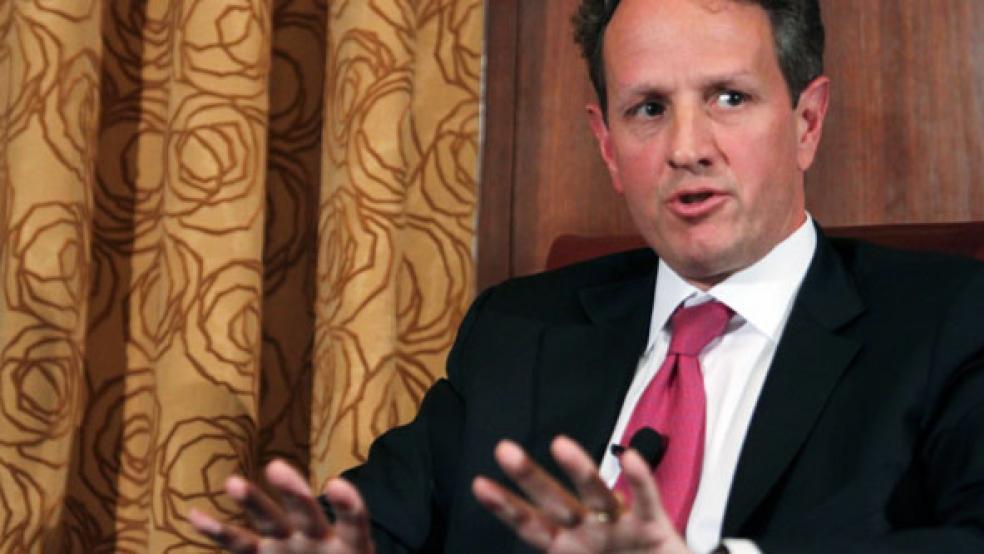There’s nothing quite like a memoir written by a recently departed senior administration official to set off rounds of internecine backbiting and score settling in Washington. The new book about the handling of the financial crisis by former Treasury Secretary Tim Geithner, due out today, is no exception.
Stress Test is expected to chronicle the inside deliberations about whether and how to save the largest U.S. financial institutions from possible bankruptcy in the worst moments of the financial crisis. Geithner served a pair of key roles as the country worked through the disastrous years of 2007 onward, first as President of the Federal Reserve Bank of New York – a regulator of many of the largest banks in the country – and then as Treasury Secretary under President Barack Obama.
Related: Geithner Memoir to Connect Dots of Financial Crisis
Geithner reportedly reserves special criticism for Neil Barofsky, the attorney named Special Inspector General of the Troubled Asset Relief Program who was highly critical of how the federal government managed the program designed to help financial firms manage the toxic mortgage assets on their books during the crisis.
Early reports about the book prompted Barofsky to pen a response to Geithner before the book was even released.
According to Politico, Geithner bashes Massachusetts Sen. Elizabeth Warren’s hearing on the TARP program as being more “made-for-YouTube inquisitions than serious inquiries.”
Most advance reviews claim the book’s substantive revelations seem likely to appeal to a relatively small segment of the population, specifically those closely interested in the debates surrounding, for instance, the decision to allow the investment bank Lehman Brothers to fail in September of 2008.
Related: Bond Markets Put the Squeeze on Putin
The Financial Times writes that Geithner supported a Fed-backed loan to facilitate the purchase of Lehman by U.K.-based Barclays, which would have prevented the bankruptcy. Geithner’s opinion, however, appears to have been moot, as British regulators opposed the deal.
According to The Wall Street Journal, Geithner takes an aggressive stance with regard to the need for government intervention in financial crises. He reportedly condemns the “moral hazard fundamentalists” who worry that evidence that the government will protect large financial firms from bankruptcy and their creditors from losses will lead to increasingly risky behavior.
One incident that the public may remember is the bailout of giant insurance company AIG. Regardless of the largess of the American taxpayer, the company issued out-sized bonuses to its executives even when it was plunging toward insolvency.
A cover story in The New York Times Magazine quotes Geithner, “I did not believe I had any legal basis to stop contractually promised payments, and I thought the public relations value of trying to intervene would pale in comparison to the damaging specter of the U.S. government trying to break a private contract.”
The best-selling book that reported the details of the financial crisis — and that was ultimately made into an HBO movie — was Andrew Ross Sorkin’s Too Big to Fail. That book and that phrase are indelibly imprinted into the history of the worst American recession in modern times.
Judging by the early reviews, the Geithner book is a fairly typical Washington memoir that will interest a small slice of political insiders who are deeply engaged in policy debates. The headline grabbing details, including the fact that Geithner at one point recommended Hillary Clinton as his successor, will have little staying power in the news cycle.
Top Reads from The Fiscal Times:





